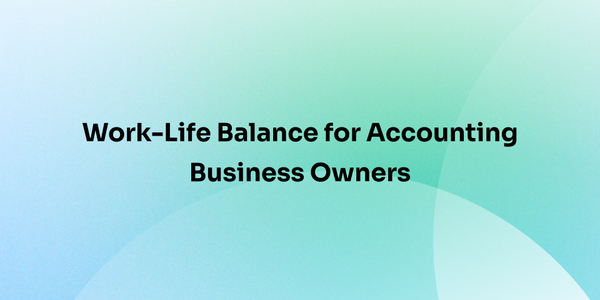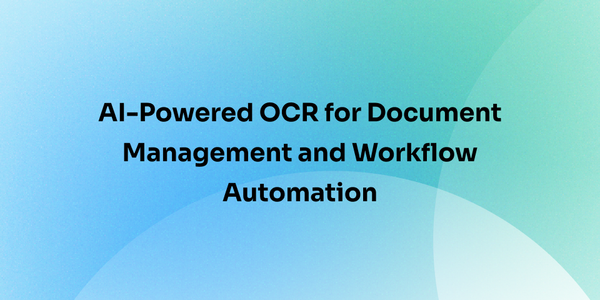
Automation
•
8 min read
Top 10 benefits of using AI in Accounting
Nakshatra Shah
Updated on 02 September 2024

"AI is not just a technology, it's a fundamental shift in how we solve problems and make decisions." – Satya Nadella
By now, the words “Artificial Intelligence” or “AI” have reached far and wide, touching even the digitally disconnected. The term itself has become ubiquitous, whispered in conversations and splashed across headlines. Many have even taken their first steps into the world of AI, experiencing its capabilities firsthand. And this revolution has found its roots in accounting, with a recent report projecting the market to surge from $4.73 billion in 2024 to an astounding $26.66 billion by 2029, fuelled by a remarkable 41.27% CAGR. Ignoring it would be akin to stepping into the accounting world’s battlefield with sticks and stones, outdated artillery. Embracing AI in accounting is an unsaid law, a move that is not only smart but also a necessity.
AI's influence on accounting began in the 1970s with early NLP models, but recent advances in deep learning and computer vision have revolutionized the field. Today, AI is driving significant transformation in accounting. Here are the ten key advantages reshaping the profession.
1. Automation of Manual Tasks
AI waltzes into accounting, automating the mundane and repetitive tasks that once consumed countless hours - data entry, invoice processing, payroll calculations - all handled with speed and precision. The risk of human error is minimized to a level never achieved before, empowering accountants to focus on what truly matters. And with the magic wand of OCR technology, AI converts any written text to its digital version, eliminating the delays that once haunted data entry.Dive deeper into the benefits of automation in accounting in our recent blog. And for those curious about the specifics of how AI-powered OCR revolutionizes document management, we have dedicated a separate blog post to dig into its intricacies.
2. Advanced Data Analytics
Looming deadlines force professionals to sacrifice depth for speed. With the ability to process and analyze colossal volumes of information, AI allows accountants to go beyond the surface, diving into the intricate patterns and trends that lie beneath. It effortlessly searches for anomalies, identifying potential risks while also highlighting opportunities for growth and improvements. AI-powered real-time analysis empowers executives with the clarity and insight needed to steer the organization in the right direction. It offers a bird's-eye view of the financial landscape, ensuring that every decision is made with confidence, certainty and foresight.
3. Elevated Client Experiences
In the realm of client service, where responsiveness and personalization are paramount, AI emerges as the 24/7 chaperone, catering to clients' needs with attentiveness. AI chatbots and virtual assistants reduce the need for human personnel and stand ready to field inquiries, provide real-time support and offer self-service options, all with a touch of human-like interaction. AI systems can also analyze client data and behaviour, enabling accountants to offer personalized financial advice and recommendations, creating a truly wonderful experience.
4. Instant Data, Timely Action
AI-powered accounting systems act as a real-time financial GPS, empowering swift, informed decisions. Teams get instant access to accurate financial data, enabling timely course corrections and proactive strategy optimization. It encourages a proactive approach, ensuring businesses navigate the financial landscape with confidence and agility.
5. Prevention and Detection of Fraud
AI’s ability to sift through loads of data and spot deviations invisible to the human eye can prove to be the trump card against financial crime. Traditional methods mean waiting for quarterly reports to catch a glimpse of a company's financial health. AI scrutinizes financial data, flagging potentially suspicious patterns in real-time. With access to such data, executives can make timely adjustments and course corrections. Auditors can detect fraud using AI to consider their reporting requirements and form their opinion on the financial statements.
6. Predictive Analysis
AI, a financial visionary, goes beyond mere fraud detection. It equips the power of historical data to predict future trends, helping businesses to navigate the financial landscape. From cash flows to revenue projections, AI technologies offer transparency, enabling strategic decision-making and quick adaptation to a variable market. For example, AI-powered systems can breakdown customer behaviour through the lens of past transactions and market trends. This wisdom enables companies to anticipate needs, personalize strategies and foster enduring customer relationships.
7. Collaboration Across Teams and Cultures
Real-time access to data and translation bridges language gaps fostering an inclusive workspace. AI optimizes resource allocation, ensuring that the right person is always on the right job, boosting productivity. Financial documents are translated with precision, cross-cultural communication flows seamlessly, and accountants can collaborate effortlessly with international counterparts.
8. Improved Compliance and Risk Management
In the dynamic regulatory landscapes across the globe, AI helps firms to be proactively vigilant in identifying and mitigating potential compliance risks. By ensuring accurate and latest data, it enables businesses to navigate complex regulations. It uncovers hidden compliance gaps, warning of potential pitfalls. With AI as their legal compass, companies can safeguard their reputation and ensure a firm ethical footing in the eyes of the law as well as clients.
9. Improved Efficiency and Precision
AI redefines accounting precision. It processes data at lightning speed, enhancing efficiency, minimizing errors and ensuring accurate financial reporting. Calculations, extractions, predictions, reconciliations – all done with absolute accuracy. Accountants experience a welcome shift from laborious work to insightful analysis.
10. Increased Cost Savings
AI automation removes the need to spend longer hours on data entry, customer service, invoice processing, etc. This streamlines operations, trimming the workforce and thus liberating the money spent on salaries, training and benefits, all without affecting productivity.
Final Thoughts
The present and future of accounting gleams with AI's transformative potential. As technology drives forward, AI promises to automate complexities, refine predictions and uplift financial insights, ultimately reshaping an accountant’s role to a more strategic one. This evolution demands each organization to strategize AI integration and prioritize ethical, regulated implementation where human oversight remains crucial. Those that harness this potential will not only thrive but lead, leaving those hesitant in their wake. The path forward requires a harmonious blend of human expertise and AI's computational prowess, which will change the way accounting is done forever. AI's trajectory in accounting is undeniably a future shining of innovation, efficiency and boundless possibilities.
More articles

General
10 MIN READ
Work-Life Balance: Managing Stress and Burnout as an Accounting Business Owner
Nakshatra Shah
03 JULY 2024

General
7 MIN READ
AI-Powered OCR for Document Management and Workflow Automation
Nakshatra Shah
31 JULY 2024

General
7 MIN READ
AI-Powered OCR for Document Management and Workflow Automation
Nakshatra Shah
31 JULY 2024

